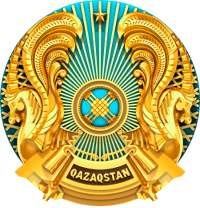Analytical Report based on Anti-Corruption Monitoring held by Olympic Cycling Training Center of Committee for the Sports and Physical Education under the Ministry of Culture and Sports of the Republic of Kazakhstan for the Second Half of 2018
Following the results of the second half of 2018, the Republican State Budget-Supported Enterprise “Olympic Cycling Training Center” (the RSBSE “Olympic Cycling Training Center”) of the Committee for Sports and Physical Education under the Ministry of Culture and Sports of the Republic of Kazakhstan (hereinafter referred to as the Enterprise), based on the results of anti-corruption monitoring:
I. Introducing Part
In line with Article 7 of the Anti-Corruption Law of the Republic of Kazakhstan (hereinafter referred to as the Law), the anti-corruption monitoring is collecting, processing, summarizing, analyzing and evaluating by anti-corruption entities anti-corruption policy information, the state of anti-corruption law enforcement practice and society’s perceptions and assessments of the corruption.
1. The subject of the anti-corruption monitoring is the activity of the RSBSE “Olympic Cycling Training Center”.
The main objective of the anti-corruption monitoring is to study and evaluate how the Enterprise organizes anti-corruption activities.
The Enterprise is a legal entity in the business structure of a state enterprise on the basis of operational management.
2. The anti-corruption monitoring has been conducted: in the structural units of the Enterprise.
3. The anti-corruption monitoring period: the second half of 2018.
II. Information and Analytical Part
In line with Article 6 of the Anti-Corruption Law of the Republic of Kazakhstan:
1) anti-corruption action system:
2) forming an anti-corruption culture;
3) identifying corruptogenic norms in the legal expertise;
4) forming and complying with anti-corruption standards;
5) financial control;
6) anti-corruption restrictions;
7) prevention and resolution of conflicts of interest.
In terms of the formation of anti-corruption culture. The anti-corruption culture is formed through a set of educational, informational and organizational activities, and is also the obligation of each anti-corruption entity.
In compliance with provisions of paragraph 4, Article 9 of the Law, an explanatory work can help to form an anti-corruption culture with the purpose of an intolerant attitude towards corruption, so the accepted standard of conduct of the Enterprise will characterize the civic stance of every employee of the Enterprise, and honesty and integrity. The company understands that it is impossible to achieve the desired result if employees have no anti-corruption culture, strong immunity to corruption, its public censure. The Enterprise plans to form an anti-corruption culture in each employee with anti-corruption principles.
The Enterprise extends from its Internet site corruption eradication actions to be widely publicized. Thus, in the first half of 2018, there were publications of an anti-corruption standard, an anti-corruption plan, and an anti-corruption article, etc.
Regarding corruptogenic norms when conducting due diligence review under the laws of the Republic of Kazakhstan. The Enterprise does not control and supervise and does not provide public services to individuals and legal entities according to the main scope of operations, as well as the aims and objectives under the scope of operations.
The observed period has not shown any conflict of interest, the structural units of the Enterprise have no permissive and control functions. In the observed period, a criminal case was initiated per employee of the Enterprise under Article 189, Part 3, Paragraph 1 of the Criminal Code of the Republic of Kazakhstan.
As we have conducted the anti-corruption monitoring, no appeals from individuals and legal entities, no corruption reasons were identified. The observed period has not shown any publications in the media and social networks on corruption offenses committed by employees of the Enterprise.
For the corruption prevention when the Enterprise conducts the public procurement, employees strictly abide the Public Procurement Law of the Republic of Kazakhstan, the Public Procurement Rules.
Regarding financial control. Financial control measures are fully respected according to the anti-corruption monitoring conducted. Officials in charge of management in the Enterprise timely submitted income and property declarations to the State Revenue Department.
Regarding anti-corruption restrictions under Article 12 of the Law, anti-corruption restrictions are statutory restrictions and its goal is to prevent corruption offenses, under which the following is prohibited:
1) carrying out non-public function compatible activities;
2) inadmissible joint service (work) of close relatives, spouses and cousins-in-law;
3) using official and other distribution-restricted information, otherwise it can be considered as an action to obtain or extract property and non-property benefits and advantages;
4) accepting gifts being in public post under the laws of the Republic of Kazakhstan.
The anti-corruption monitoring has showed no violations to the above restrictions.
III. Concluding Part
Findings: In follow-up of anti-corruption monitoring, and for an atmosphere of corruption intolerance and anti-corruption culture in the Enterprise, the work group recommends the following:
1) continue forming an anti-corruption culture through holding seminars, “round tables” among employees of the Enterprise involving representatives of the Agency of the Republic of Kazakhstan on Civil Service and Anti-Corruption Affairs, law enforcement agencies, and Nur Otan party;
2) conduct continually explanatory work among the employees of the Enterprise;
3) post the anti-corruption monitoring results on the official Internet resource of The RSBSE “Olympic Cycling Training Center”.

